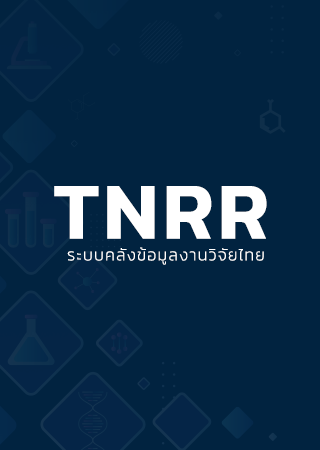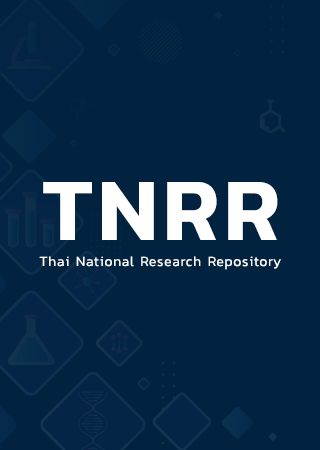Description
นักศึกษาในมหาวิทยาลัย เป็นช่วงเวลาที่ห่างจากครอบครัว และเผชิญกับสังคมและสิ่งแวดล้อมใหม่ควรได้รับการพัฒนาให้มีความสามารถดูแลสุขภาพจิตของตนเองและเพื่อน เพื่อเป็นการป้องกันปัญหาสุขภาพจิตในระยะต้นงานวิจัยมีวัตถุประสงค์ดังนี้ 1) เพื่อทำความเข้าใจสถานการณ์ของปัญหาสุขภาพจิต และโมเดลความสัมพันธ์เชิงโครงสร้างของปัญหาสุขภาพจิต ของนักศึกษามหาวิทยาลัย 4 ภูมิภาค 2) เพื่อสร้างและทดลองใช้โปรแกรมพัฒนาผู้ช่วยเหลือปฐมภูมิด้านปัญหาสุขภาพจิต ในมหาวิทยาลัย 4 ภูมิภาค เพื่อลดความเครียด ความวิตกกังวล และภาวะซึมเศร้า 3) เพื่อทำความเข้าใจและสังเคราะห์ลักษณะที่สำคัญของระบบให้ความช่วยเหลือปฐมภูมิด้านปัญหาสุขภาพจิต ความเครียด ความวิตกกังวล และภาวะซึมเศร้า ในระหว่างมหาวิทยาลัย 4 ภูมิภาคของประเทศไทยกลุ่มตัวอย่าง ประกอบด้วย นิสิต/นักศึกษา 4 คณะ จำนวน 1,341 คน และนิสิต/นักศึกษาที่เข้าร่วม การทดลอง จำนวน 274 คน และผู้เกี่ยวข้องกับระบบการช่วยเหลือนิสิต/นักศึกษา จาก 4 มหาวิทยาลัย จำนวน 22 คน เครื่องมือเก็บข้อมูล ประกอบด้วย แบบวัดการสนับสนุนทางสังคม แบบวัดการกำกับอารมณ์ แบบวัดบุคลิกภาพ แบบวัดความรอบรู้ทางสุขภาพจิต แบบวัดภาวะสุขภาพจิต และแบบสัมภาษณ์ ผู้บริหาร อาจารย์ที่ปรึกษา และนิสิต/นักศึกษา เครื่องมือทุกชุดผ่านการตรวจเนื้อหาจากผู้ทรงคุณวุฒิ และมีค่า ความเชื่อมั่นอยู่ระหว่าง 0.83-0.96 เครื่องมือทดลอง คือ โปรแกรมพัฒนาผู้ช่วยเหลือปฐมภูมิด้านสุขภาพจิตตามแนวคิดของ Kitchener and Jorm (2008) ผ่านขั้นตอนการหาคุณภาพจากผู้ทรงคุณวุฒิ และการทดสอบนำร่อง และมีลักษณะเฉพาะดังนี้ คือ ประกอบไปด้วยกิจกรรมย่อย 3 ส่วน จำนวนรวม 8 ชั่วโมง ผู้ผ่าน การอบรมตามโครงการจะได้รับการประเมินว่ามีคุณสมบัติดังนี้ 1) เป็นผู้มีความรู้ความเข้าใจ รู้จัก และสังเกตอาการวิตกกังวล เครียด และซึมเศร้า 2) มีความเข้าใจด้านการแบ่งแยกและการตีตรา 3) มีความความเข้าใจปัจจัยที่ส่งผลต่อความบกพร่องด้านสุขภาพจิต และการป้องกันตัวเองโดยใช้การคิด และเปลี่ยนพฤติกรรม และ 4) มีทักษะการช่วยเหลือแบบ ดู ฟัง แชร์ ชม เช็ก ชวน เชียร์ผลการวิจัยที่สำคัญมีดังนี้ 1) ผลการวิเคราะห์โมเดลสาเหตุของภาวะสุขภาพจิต พบว่า ตัวแปร ที่มีความสำคัญคือ การกำกับอารมณ์ โดยเฉพาะอย่างยิ่ง การกำกับอารมณ์แบบใช้ความคิดทางลบ จึงนำมาใช้ ในการออกแบบโปรแกรมการให้ความช่วยเหลือด้านสุขภาพจิตเบื้องต้น ในกิจกรรมส่วนที่ 2 และ 3 และนำบุคลิกภาพแบบอารมณ์ไม่มั่นคง มาใช้ในการคัดกรองนิสิต/นักศึกษา เพื่อเข้ารับการทดลอง 2) ประสิทธิภาพ ของโปรแกรมฯ ที่พัฒนาขึ้น มีขนาดอิทธิพลปานกลาง ผลการใช้โปรแกรมฯ ยังไม่พบว่าแตกต่างกันระหว่าง นิสิต/นักศึกษาระดับปริญญาตรีของแต่ละคณะ ซึ่งอาจสะท้อนถึงความสามารถในการอ้างอิงผลการวิจัย (Generalization) ของโปรแกรมฯ 3) ระบบการให้คำปรึกษาด้านสุขภาพจิตของแต่ละมหาวิทยาลัย ประกอบด้วย ด้านปัจจัยการให้บริการ ด้านกระบวนการ และด้านผลผลิต ด้านที่ขาดความสมบูรณ์ ได้แก่ ด้านกระบวนการให้บริการ และด้านการประเมินผลลัพธ์จข้อเสนอแนะ เพื่อการพัฒนาระบบการให้คำปรึกษาปฐมภูมิด้านสุขภาพจิต ให้มีประสิทธิภาพ และยั่งยืน มหาวิทยาลัยควรมีการสร้างผู้ให้ความช่วยเหลือปฐมภูมิในระบบที่มีอยู่เดิม โดยทำได้ 3 แบบ คือ 1) พัฒนาอาจารย์ และเจ้าหน้าที่ของกองกิจการนิสิตในมหาวิทยาลัย ให้สามารถใช้โปรแกรมฯ และเครื่องมือได้ 2) พัฒนานิสิต/นักศึกษาที่ผ่านการอบรมในครั้งนี้ ให้มีทักษะของการใช้โปรแกรมฯ และเครื่องมือ เพื่อยกระดับให้เป็นผู้จัดกิจกรรม และ 3) พัฒนาผู้สอนวิชากลุ่มศึกษาทั่วไปให้สามารถใช้โปรแกรมฯ ได้ ในการเรียนการสอนปกติคำสำคัญ: โปรแกรมการช่วยเหลือปฐมภูมิด้านสุขภาพจิต, ภาวะสุขภาพจิต, ความรอบรู้ทางสุขภาพจิต, การกำกับอารมณ์<br><br>Undergraduate students are away from family and encountered new social environments. Accordingly, they must be able to take care of their mental health and help friends for early prevention of mental health problems.The current research aimed 1) to explore structural relationships model of the mental health problem in overall universities students; 2) to assess the effectiveness of the mental health first aid (MHFA) systems in undergraduate students in faculties; and 3) to understand and synthesize main features of the MHFA systems among 4 regional universities.Participants composed of 22 people involved with the mental health support systems from 4 regional universities and 1615 undergraduate students from 4 faculties and regional universities (i.e., 1341 during the survey and 274 during the experiment).Main research instruments were social support questionnaire, emotion regulation questionnaire, personality questionnaire, mental health literacy questionnaire, mental health status questionnaire, and Interview forms for administrators, advisors, and undergraduate students. All instruments had well content validity and reliability coefficients range from 0.83-0.96.The MHFA program was developed according to the ideas of Kitchener and Jorm (2008), then examined its validity by experts and pilot tested. The unique features of the program were firstly, it composed of 3 main activities of 8 hours. Secondly, participants were able to demonstrate knowledge, understanding, and observing anxiety, stress, and depression states, understanding discrimination and stigmatization, understanding factors affecting mental health and how to protect oneself using cognitive and behaviors change. Lastly, demonstrate helping skills comprising Look, Listen, Share, Compliment, Check, Persuade, and Cheer steps.A summary of research findings was as following. 1) As per the causal model of mental health, the main findings demonstrated the strong effects of the emotion regulation, especially the negative ideas. Accordingly, the given findings were inputted into the MHFA program in activity 1 and 2, and the neuroticism personality trait was also utilized as an inclusion criterion for recruiting participants. 2) The current results confirmed the effectiveness of the developed program. In addition, the MHFA program proved no difference among undergraduate students from various faculties, which might reflect a generalizability of the developed program. 3) The mental health support system in 4 universities showed 3 mainชactivities, the input, process, and result. The uncompleted activities were the process of helping and the result evaluation.Recommendations for more effective and sustainable mental health support system were 1) to train personnel in the student service department and student advisor to use the MHFA program and measuring instrument, 2) to train students previously certified pass from the MHFA program to be a trainer, and 3) to train the general education course instructors to be the MHFA program trainer.Keyword: Mental Health First Aid, Mental Health, Mental Health Literacy, Emotion Regulation
Date of Publication :
02/2023
Publisher :
สำนักงานการวิจัยแห่งชาติ (วช.)
Category :
รายงานการวิจัย
Total page :
77012 pages
People Who Read This Also Read


